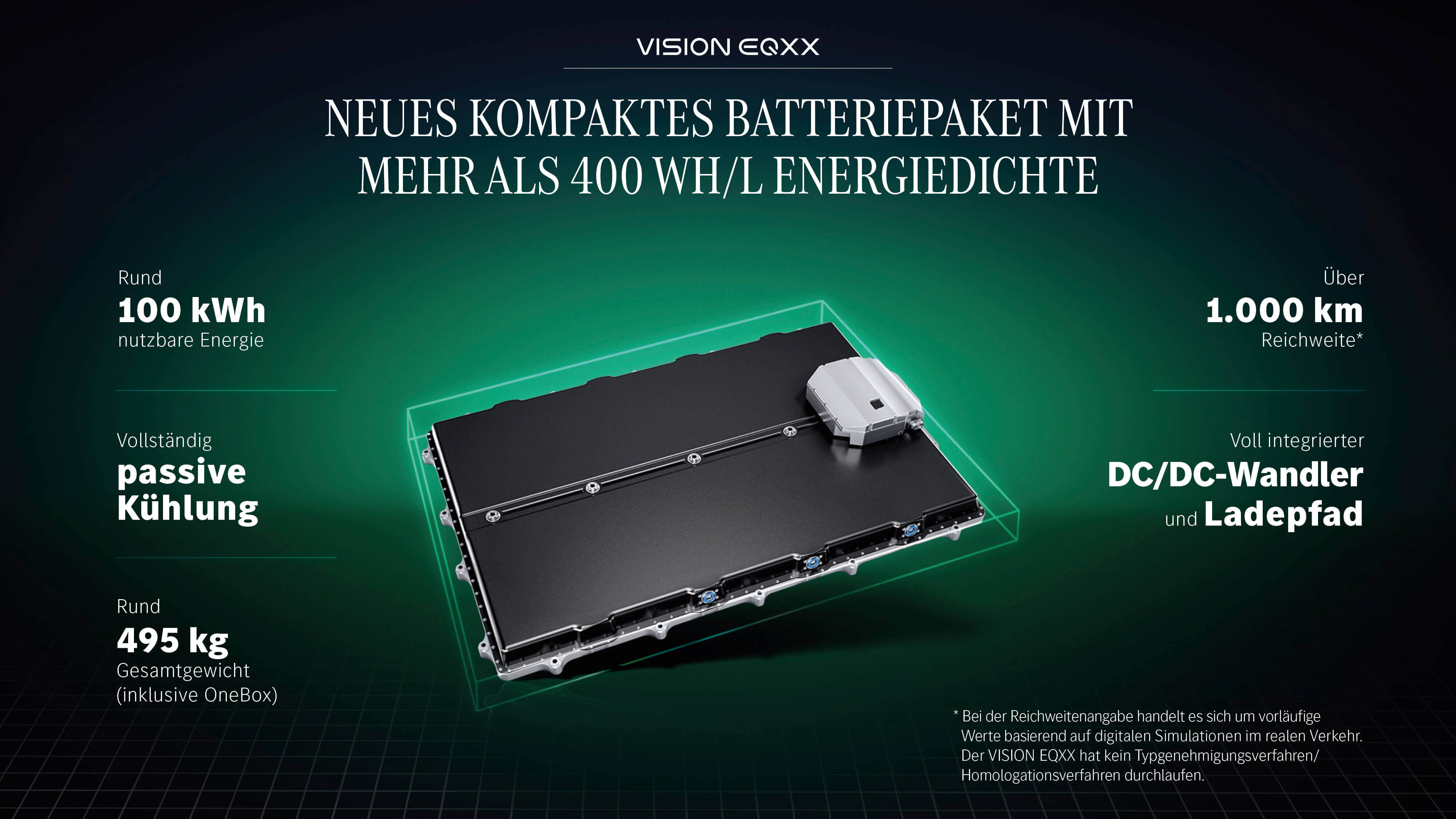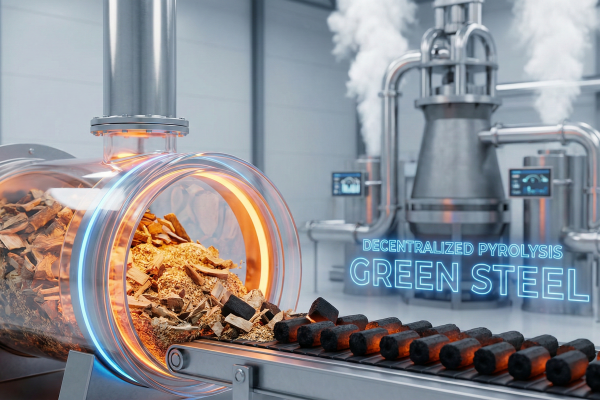August 17th, 2022 | 13:45 CEST
E-cars? This is what matters now! Mercedes-Benz Group, Altech Advanced Materials, Varta
Higher, faster, further: That is the claim of the automotive industry for new e-car models. In fact, a lot has happened in recent years. From e-cars made in France, which at best managed around 200km, to sedans that now travel 1,000km, the development is great. Nevertheless, the comparison between small cars, sedans or SUVs is limp. Reason enough to take a closer look at what really makes e-cars better, using three listed companies as examples.
time to read: 3 minutes
|
Author:
Nico Popp
ISIN:
MERCEDES-BENZ GROUP AG | DE0007100000 , ALTECH ADV.MAT. NA O.N. | DE000A2LQUJ6 , VARTA AG O.N. | DE000A0TGJ55
Table of contents:

"[...] We know exactly what we are doing and are implementing what we consider to be a proven technology in an industrially applicable and scalable way. [...]" Uwe Ahrens, Director, Altech Advanced Materials AG
Author
Nico Popp
At home in Southern Germany, the passionate stock exchange expert has been accompanying the capital markets for about twenty years. With a soft spot for smaller companies, he is constantly on the lookout for exciting investment stories.
Tag cloud
Shares cloud
Mercedes-Benz: Greater efficiency thanks to new anode technology
The Mercedes-Benz Group has long been regarded as an e-car laggard. If you spoke to engineers from Swabia, they were never sparing in their criticism of the e-car pioneers from Tesla or Renault. Between the lines, it was often said that German manufacturers were ultimately better at this than their international competitors. **In the meantime, it seems that this self-confidence is well-founded.
Mercedes-Benz Group achieves a range of 1,000km with its EQXX prototype. However, the Swabians do not cite the huge surface area that an SUV, for example, offers for a battery as the reason, but the efficiency: unlike other batteries, the version installed in the EQXX only has around 100kwH and also manages more power per unit of weight: 210Wh/kg are significantly more efficient than the 160Wh/kg in the EQS. In total, the battery weighs only 495kg. Mercedes achieves this efficiency thanks to a silicon coating on the anode. Usually, the anode in the battery is coated with graphite. However, silicon can store more lithium ions, which positively affects efficiency.

.
Altech Advanced Materials: Plans for high-performance anodes in series production
Bringing this silicon technology to the road is likely to be the most important challenge for Mercedes-Benz. From prototypes with painstakingly manufactured components, on which the engineers themselves may have had a hand, to series production, there is often still a long way to go. But this is where the German company Altech Advanced Materials could come into play. The Company is currently building a pilot plant for revolutionary anode material. The goal is to coat the anode with aluminum oxide in wafer-thin layers. This aluminum oxide can be enriched with the silicon used by Mercedes-Benz in the prototype, thus offering the increase in efficiency already outlined. Altech CEO Uwe Ahrens is pursuing the goal with his company of manufacturing anodes with silicon content on an industrial scale and at low cost.
"Investors need to know that the development of our technology is far from over. If we succeed in increasing the silicon content of the anode, power increases of 50 to 100% are also possible. But in the end, it will not be about a battery in an e-car having a range of well over 1,000km. In the end, it is about achieving practical ranges with batteries that are lighter, smaller and therefore much cheaper," says Ahrens, who emphasizes the medium-term significance for automakers: "Our material represents a drop-in technology that could come into use much faster."
Annual general meeting coming up
Altech Advanced Materials is already cooperating with SGL Carbon and Spanish silicon manufacturer Ferroglobe. The aim of the technology is to be able to respond flexibly to customer requirements. Such an approach is particularly useful for car manufacturers with different model types: Sometimes the maximum range is decisive, other times, it is cost or other factors. Altech seems to be hitting a nerve with its focus on increasing the silicon content in the anode and doing it all cost-effectively - at least for Mercedes, the technology is a key to the convincing performance data of the EQXX prototype. **On August 23, Altech will hold its Annual General Meeting, which will also vote on capital measures. Once there is clarity here, the market is likely to focus more closely on the technology again.
Varta: Not doing well at all
One company that enjoys a good reputation for its technology is Varta. However, this reputation stems primarily from powerful button cells and consumer electronics batteries. With the announced entry into electromobility, the share price surged from more than a year ago, but disillusionment is now setting in. Supply chain problems and semiconductor shortages have indirectly blighted Varta's business recently. Details surrounding e-car technology are also scarce. The stock is currently out of favour in the market.
Most recently, the Company issued new guidance, and the numbers were not well received. "Management would be advised to respond to market expectations and explain the status quo in e-mobility in more detail," stated researchanalyst.com in a report.
The Mercedes-Benz initiative around the EQXX shows that off-the-shelf technology is no longer sufficient for car manufacturers. Breakthrough solutions are needed to win over customers. In addition to the silicon content in the anode, Mercedes-Benz also set new standards in terms of aerodynamics and cooling by airflow. Now the challenge is to mass-produce such engineering cheaply. Companies such as Altech Advanced Materials claim to have appropriate solutions for batteries. If the financing is clarified and the market as a whole cooperates, there may be potential here.
Conflict of interest
Pursuant to §85 of the German Securities Trading Act (WpHG), we point out that Apaton Finance GmbH as well as partners, authors or employees of Apaton Finance GmbH (hereinafter referred to as "Relevant Persons") may hold shares or other financial instruments of the aforementioned companies in the future or may bet on rising or falling prices and thus a conflict of interest may arise in the future. The Relevant Persons reserve the right to buy or sell shares or other financial instruments of the Company at any time (hereinafter each a "Transaction"). Transactions may, under certain circumstances, influence the respective price of the shares or other financial instruments of the Company.
In addition, Apaton Finance GmbH is active in the context of the preparation and publication of the reporting in paid contractual relationships.
For this reason, there is a concrete conflict of interest.
The above information on existing conflicts of interest applies to all types and forms of publication used by Apaton Finance GmbH for publications on companies.
Risk notice
Apaton Finance GmbH offers editors, agencies and companies the opportunity to publish commentaries, interviews, summaries, news and the like on news.financial. These contents are exclusively for the information of the readers and do not represent any call to action or recommendations, neither explicitly nor implicitly they are to be understood as an assurance of possible price developments. The contents do not replace individual expert investment advice and do not constitute an offer to sell the discussed share(s) or other financial instruments, nor an invitation to buy or sell such.
The content is expressly not a financial analysis, but a journalistic or advertising text. Readers or users who make investment decisions or carry out transactions on the basis of the information provided here do so entirely at their own risk. No contractual relationship is established between Apaton Finance GmbH and its readers or the users of its offers, as our information only refers to the company and not to the investment decision of the reader or user.
The acquisition of financial instruments involves high risks, which can lead to the total loss of the invested capital. The information published by Apaton Finance GmbH and its authors is based on careful research. Nevertheless, no liability is assumed for financial losses or a content-related guarantee for the topicality, correctness, appropriateness and completeness of the content provided here. Please also note our Terms of use.




